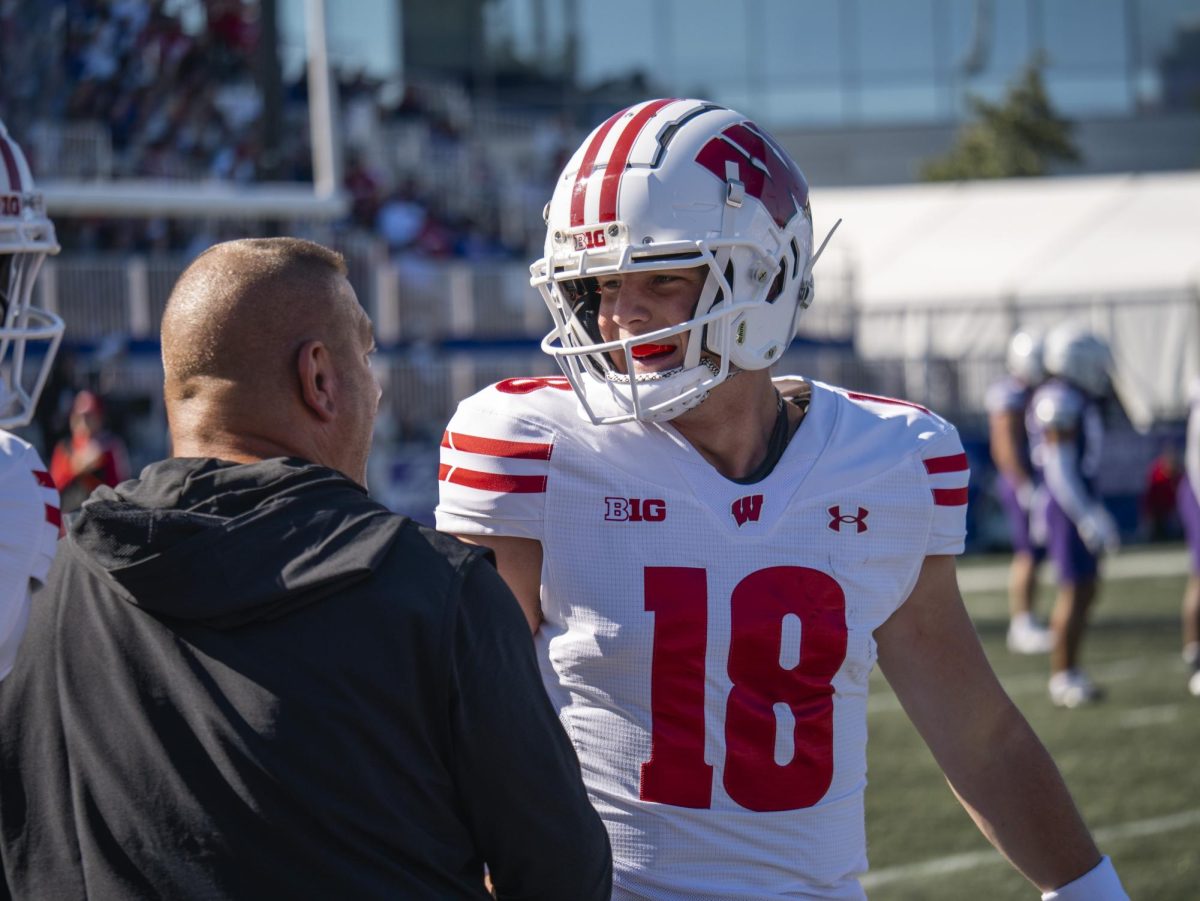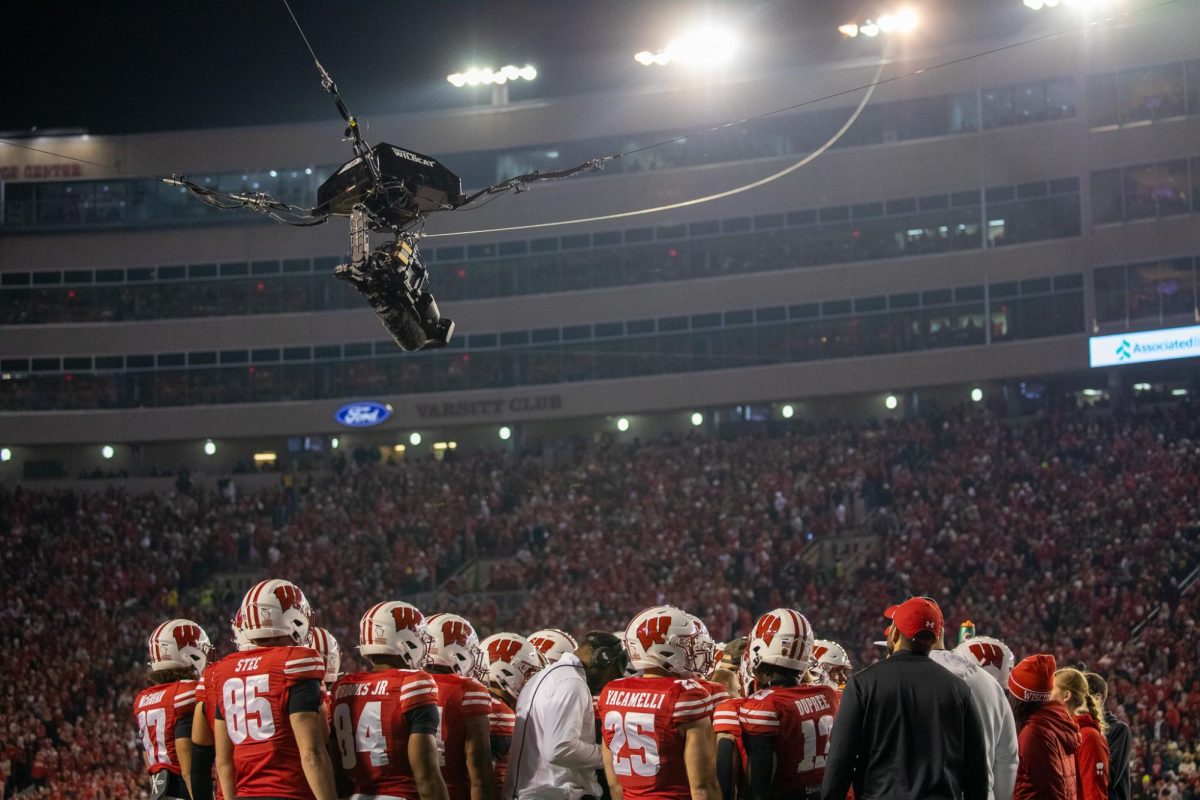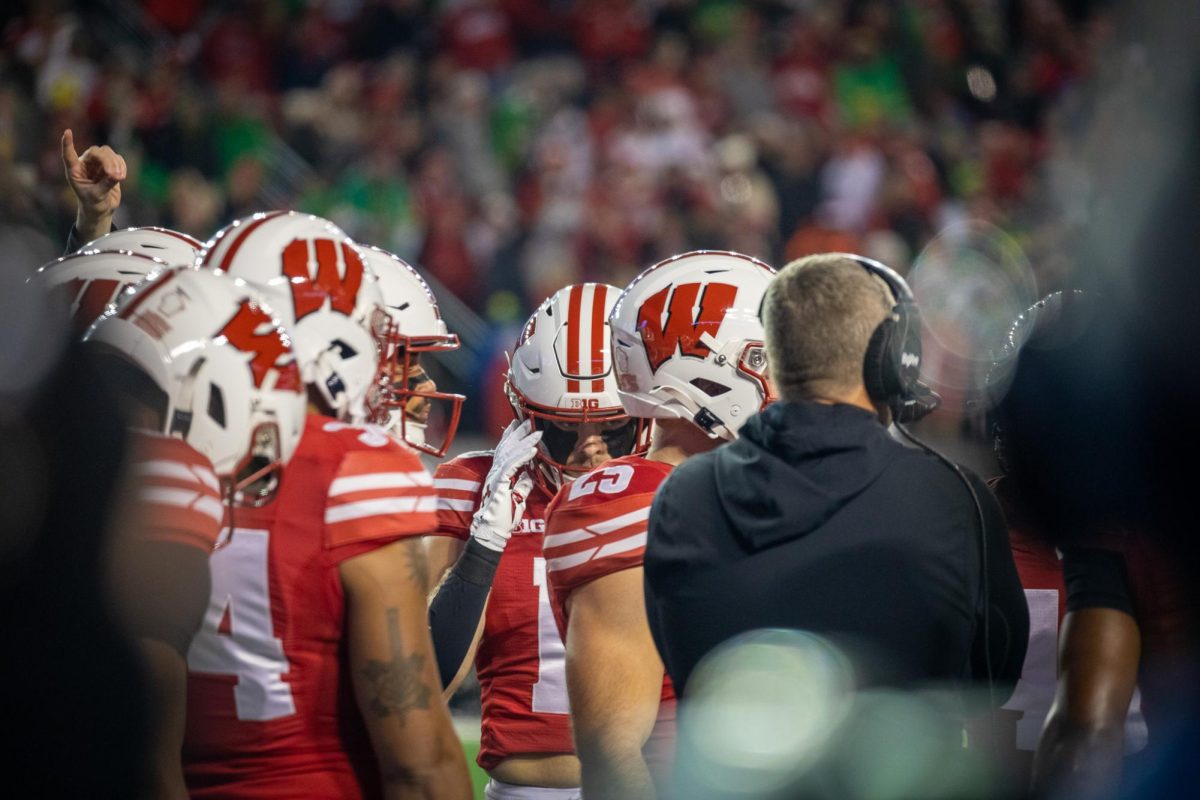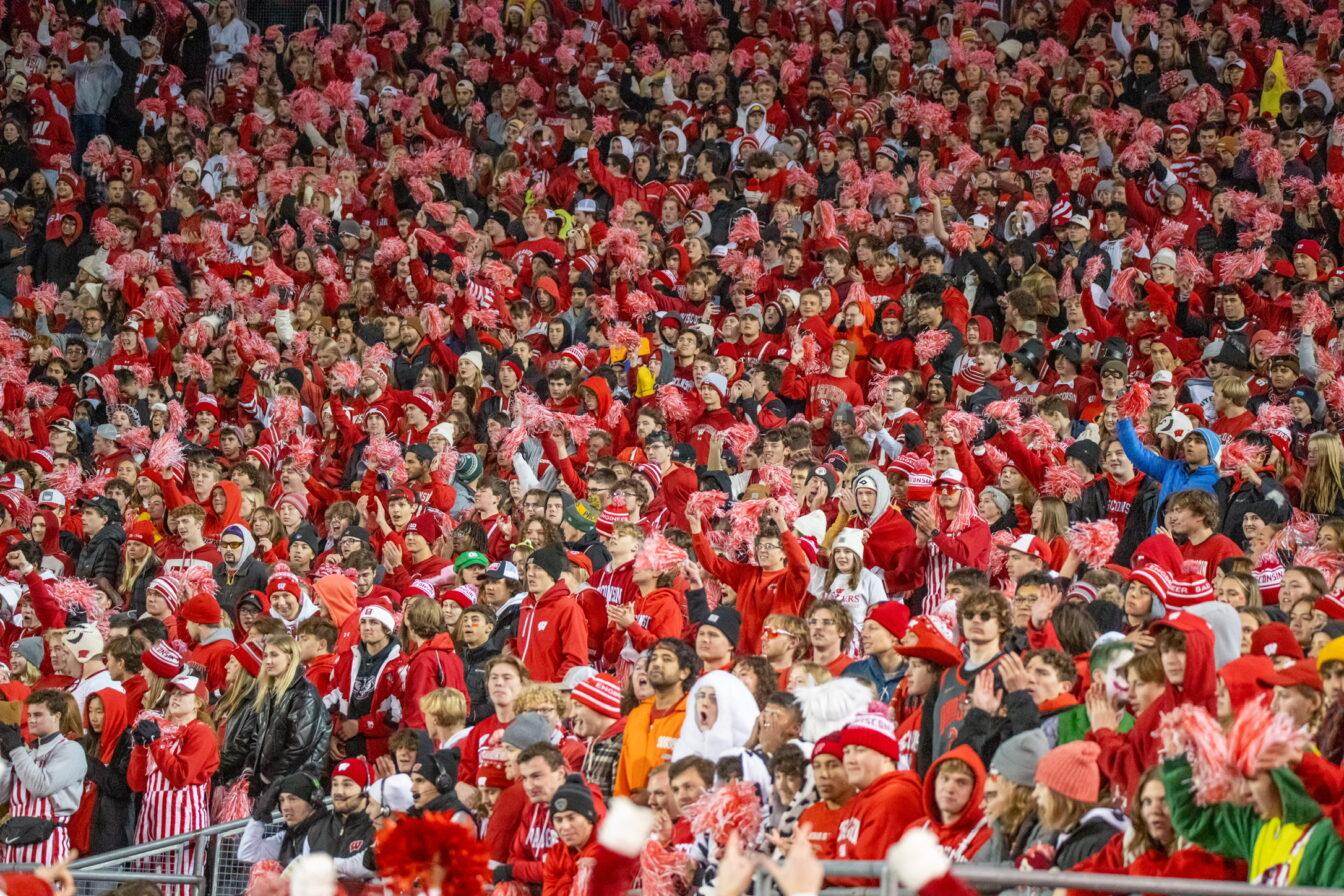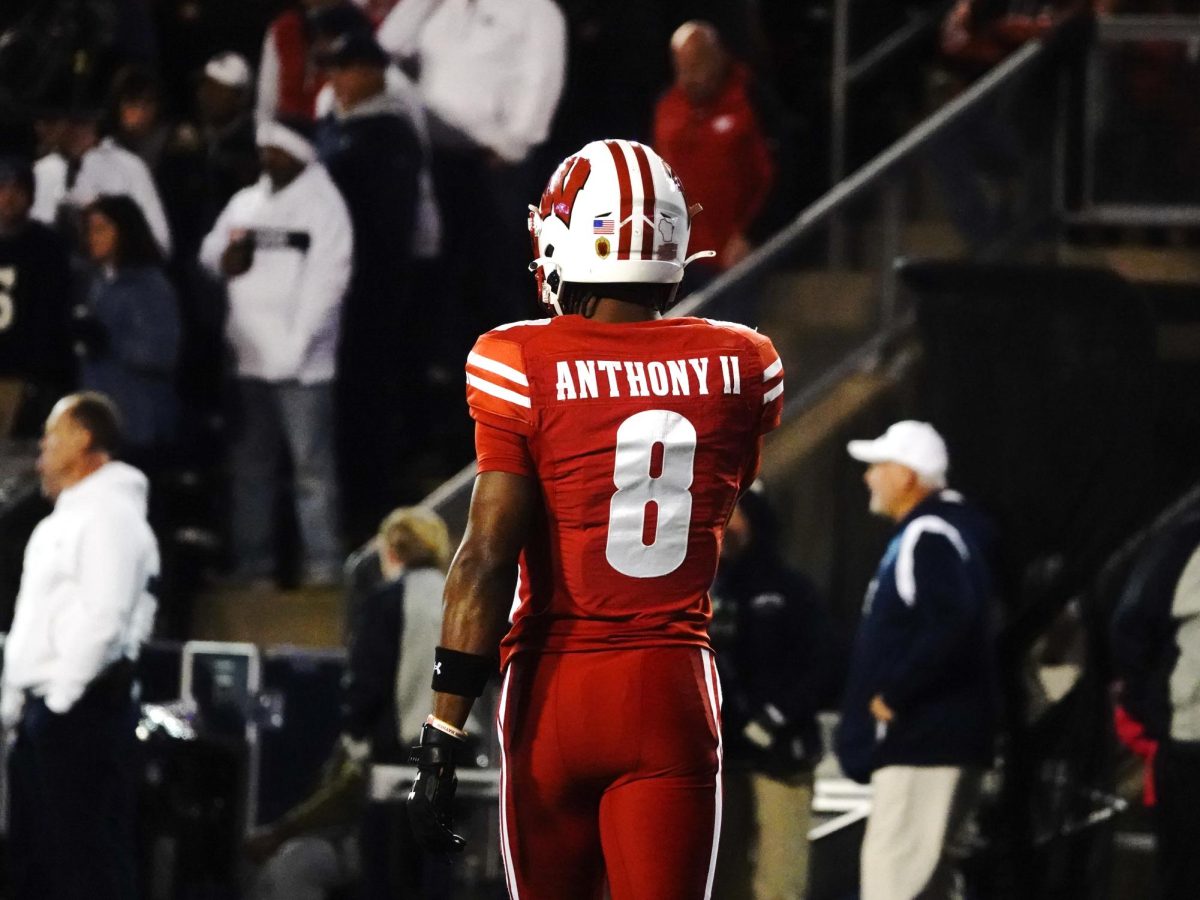[media-credit name=”Jen Small” align=”aligncenter” width=”540″] [/media-credit]When redshirt senior linebacker Chris Borland went down with a right hamstring injury in the first quarter against Illinois Oct. 19, Wisconsin already had built a commanding 21-0 lead over the ailing Illini.
[/media-credit]When redshirt senior linebacker Chris Borland went down with a right hamstring injury in the first quarter against Illinois Oct. 19, Wisconsin already had built a commanding 21-0 lead over the ailing Illini.
Through one quarter of play, Wisconsin had allowed zero points and showed no signs of slowing.
In other words, Borland’s replacement for the rest of the game didn’t need to be perfect. He just needed to play well enough to prevent the Illini from climbing back into the game.
Enter redshirt junior linebacker Marcus Trotter.
In the three quarters that followed, the Wisconsin defense would loosen up somewhat without it’s leader on the field — Illinois managed to put 32 points on the scoreboard before the game was done — but Trotter didn’t disappoint his teammates or the Wisconsin fans who made the four-hour drive to Champaign, Ill.
On the night, Trotter would lead the defense with nine tackles — four more than his season total at that point — and even managed to grab a fumble recovery.
For many college players without much game experience, being called to action at the drop of a hat would be considered a nightmare, but Trotter said a similar situation last year in which Borland was injured against Indiana helped prepare him mentally should the situation arise again.
“The previous year against Indiana, the same thing happened,” Trotter said. “It was a really tight game. I think we were pulling away at the end of the third quarter, and Borland got hurt and I went in. I think that really prepared me for this year if that were to happen.”
One week later, Trotter followed up his performance at Illinois with his first career start at Iowa Saturday. Again he led the team in tackles — again amassing nine over four quarters of play.
With Trotter coming off the bench having seen little time on the field, redshirt senior linebacker Ethan Armstrong attributed the two-time academic all-Big Ten linebacker’s intelligence for the relatively seamless transition between Borland and Trotter.
“His biggest strength is his head, his smartness,” Armstrong said. “His ability to read and recognize things and take it from the practice field into the game have really helped him.”
Still, ask Trotter if he was pleased with either of his performances, and the conversation quickly changes direction. It’s not that he didn’t enjoy helping his team earn two back-to-back wins or leading the defense in tackles. But when you play backup to one of the best college inside linebackers in the country, the bar is set pretty high.
“I’ve learned a lot from [Borland],” Trotter said. “Some of the things he can do, you can’t teach. Just to know that maybe someday I might get that same opportunity to lead the team is always good motivation to improve.”
Escaping from the shadows
And yet, as Trotter finally begins to enter the weekly conversations of Badger fans across the country, his two weeks in the spotlight for Wisconsin almost didn’t happen.
Four years ago, as a senior at Marquette High School in Milwaukee, Trotter was convinced that he would choose Minnesota on signing day. His brother, Michael, who had played with him at Marquette, had been getting more attention from colleges and had already decided on Wisconsin.
That year, the Hilltoppers ran all over the Greater Metro Conference to the tune of a 14-0 record, with Michael getting most of the credit. If Marcus went to UW with him, he risked staying in his brother’s shadow yet again.
“I don’t know why, but I thought it would be a good opportunity for me to go there and maybe try something new,” Trotter said.
But when the day came, Marcus chose Wisconsin — eager to prove himself as a walk on.
“Deep down in my heart, I knew I wanted to play with my brother,” Trotter said.
Fast-forward through the first few years of both their college careers and things have gone how most observers would have expected. Michael went on to play in 25 games in the 2011 and 2012 season, starting three times. Meanwhile Marcus played sparingly in nine games.
This year, however, things have been different.
Through eight games this season, Marcus has played in five, including his lone start against Iowa on Nov. 2. Meanwhile, Michael has appeared in just 3 games.
And yet, despite the competitive nature of their relationship, their bond as brothers runs even deeper. In fact, over the last two weeks, Michael claims he has become Marcus’ loudest, most obnoxious cheerleader.
“I think if you would have filmed me during the game, you’d be like, ‘Wow, this guy is ridiculous,’ because every time he made a tackle I was really excited,” Michael said. “I’m Marcus’ biggest fan. … It’s hard not to get antsy for him.”
While Marcus’ days in the spotlight this season may soon be fading as Borland becomes healthy enough to play once again, both brothers have their eyes on a starting spot next year.
Should their plans work out, the brothers hope to end their college football days in a similar fashion to their high school days: dominating the competition on their way to a conference title.
“I think when the time comes that Marcus and I get to play on the field together again, it is going to be so much fun,” Michael said. “At Marquette senior year he made my job so easy … so I get excited thinking about us doing that again.”



